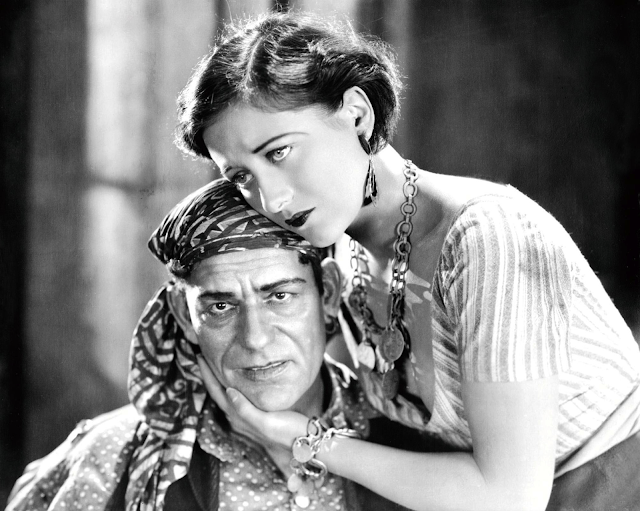The Unknown (1927)
Tod Browning's "The Unknown"
At the age of 16, Tod Browning ran away from his wealthy family to join the circus. His fascination with carnival life stemmed from his obsession with the strange, grotesque, and unique oddities found on the outskirts of modern society. When he became a filmmaker, he brought his fascinations along with him. His films often deal with the unflattering aspects of humanity that we tend to hide away. The most famous film in his catalog of silent features, "The Unknown," is no exception.
"The Unknown" follows "Alonzo the Armless," played by Lon Chaney, who throws knives with his feet at a traveling circus. What is revealed to the viewer, however, is that Alonzo is actually hiding his arms in his torso as a means of evading capture for his various crimes. While at the circus, he falls in love with a young woman named Nanon, played by Joan Crawford in one of her very first roles. He goes to drastic measures to secure his relationship with Nanon, even surgically cutting his own arms off. However, all of this is for not, as Nanon falls in love with another man.
The film deals with themes of sexual frustration, self-mutilation, deception, and savagery. The physical manifestations of these themes point to a more internal complexity of the underside of the human self. The character of Alonzo has various reasons to 'hide' himself from others. However, suppressing these violent, grotesque, and sexual urges only creates more problems for him that leave him unsatisfied, resentful, and alone.
In 1927, "The Unknown" was an utterly grotesque story. The protagonist is unsympathetic, the physical and mental ailments of the characters are uncommon, and the ending was deeply unsatisfying. However, perhaps this is exactly why the film was a success. It reaches into the corners of humanity, the parts that no one wants to tread through, and displays them unflinchingly. Browning would continue to do this throughout his career, often making films dealing with dark and disturbing illustrations of what it means to be human.




Comments
Post a Comment